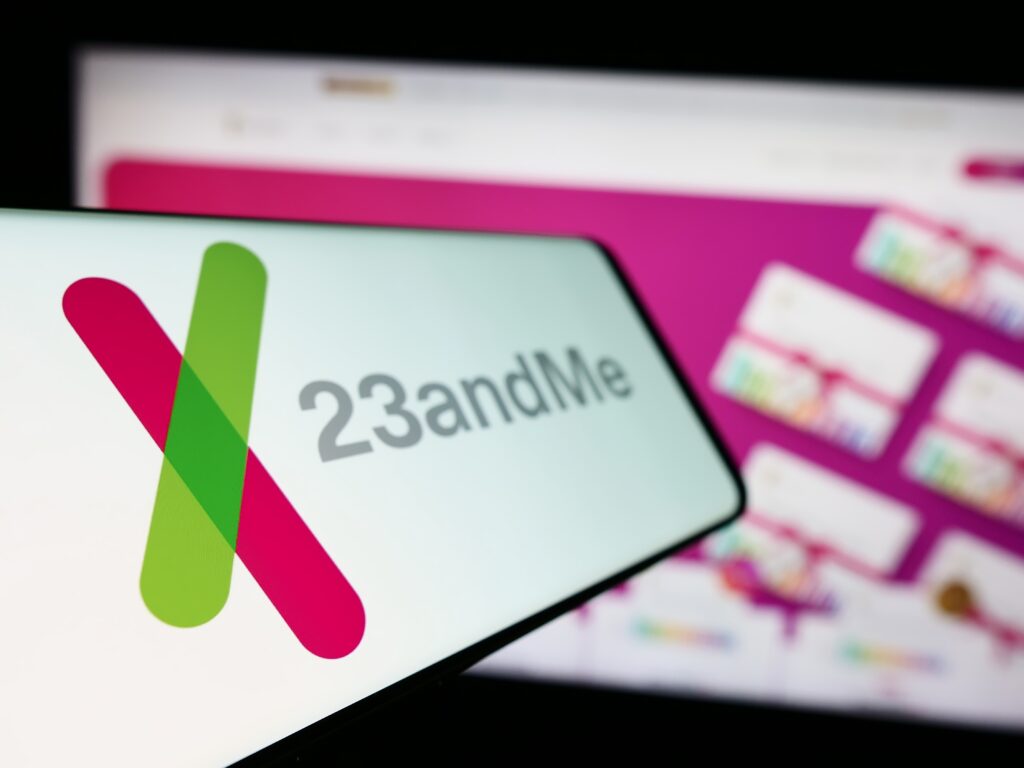Regeneron Pharmaceuticals has bought 23andMe for $256 million, just two months after the DNA testing company filed for bankruptcy. The deal gives Regeneron control of nearly all 23andMe’s assets, including its vast trove of customer genetic data. The company’s telehealth arm, Lemonaid Health, will be shut down as part of the sale.
Why the Deal Happened
23andMe filed for bankruptcy protection in the U.S. in March, after years of financial trouble. The company had once been valued at more than $6 billion but never turned a profit. A major data breach in 2023 further damaged its public image and caused customer trust to drop sharply. After losing 40% of its workforce and struggling to raise new funds, the company had no choice but to sell.
The bankruptcy auction last week ended with Regeneron as the highest bidder. The pharma giant, known for drugs like Dupixent and Eylea, said it would use the genetic data to help create new treatments. Regeneron promised to honor 23andMe’s existing privacy policies and said it has strong systems to protect personal data.
Privacy Concerns Loom Large
Privacy has been a central issue in the deal. Millions of people gave 23andMe access to their DNA, hoping to learn about their health, ancestry, or family history. Many are now worried that this sensitive data could be misused.
Last month, 23andMe agreed to have a legal overseer monitor how data is handled during and after the sale. This came after several state attorneys general warned that personal information could fall into the wrong hands.
“People trusted 23andMe with their most private information,” said Dr. Jennifer King, a privacy expert at Stanford University. “Now that a pharmaceutical company owns that data, users may wonder if the original mission of public good is still being followed.”
What Regeneron Plans to Do
Regeneron plans to use the data to improve drug development. This means finding links between genes and diseases, which can help create better treatments. A company spokesperson said Regeneron will not sell personal data and will follow all privacy laws.
Mark Jensen, chair of 23andMe’s board, said the deal protects the company’s original mission. “User choice and consent remain at the center of everything,” he said in a statement. He added that customers still have the option to delete their data if they no longer feel safe.
A Look Back at 23andMe’s Rise and Fall
23andMe was founded in 2006 by Anne Wojcicki, a former health investor. It became one of the first companies to offer direct-to-consumer genetic testing. Customers could send in a saliva sample and get a report about their ancestry and health risks.
The service became a hit with celebrities like Oprah Winfrey and Snoop Dogg publicly backing it. In 2021, the company went public via a SPAC merger, with a valuation over $6 billion. But things quickly unraveled.
Demand for DNA test kits dropped. A new subscription service failed to bring in steady income. And attempts to make money from research partnerships never met expectations.
Then came the 2023 data breach. Hackers accessed details from millions of users, including names, locations, and family trees. Though DNA files were not stolen, the damage was done. Lawsuits followed, and the company settled claims that it failed to properly protect user data.
What Users Can Do Now
As part of the bankruptcy process, some state officials urged people to delete their data from 23andMe. While the company said it would keep its promise to protect data, its privacy policy allowed data to be transferred during mergers and acquisitions.
Users still have the option to log into their accounts and delete their records. Experts recommend doing so if you have concerns, especially as the company transitions to new ownership.
This deal marks a turning point in the debate over genetic privacy. With pharmaceutical companies increasingly interested in personal health data, experts say new rules may be needed to protect consumers.
Dr. King noted that companies like 23andMe have always walked a fine line. “They claim to serve the public,” she said, “but they are still businesses that need to make money.”
As Regeneron takes control of one of the largest consumer DNA databases in the world, questions about consent, control, and trust are more urgent than ever.


